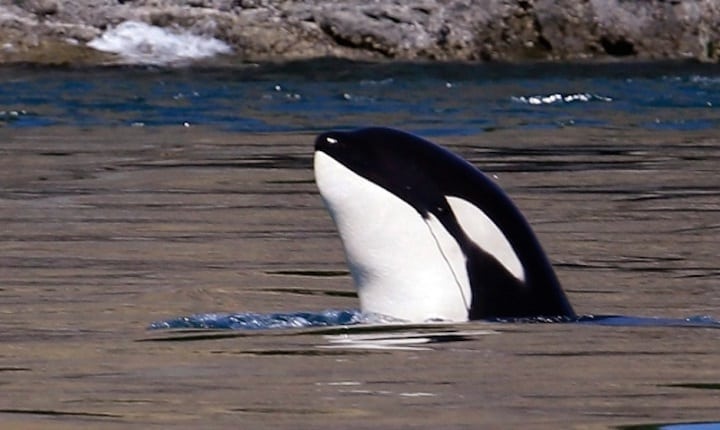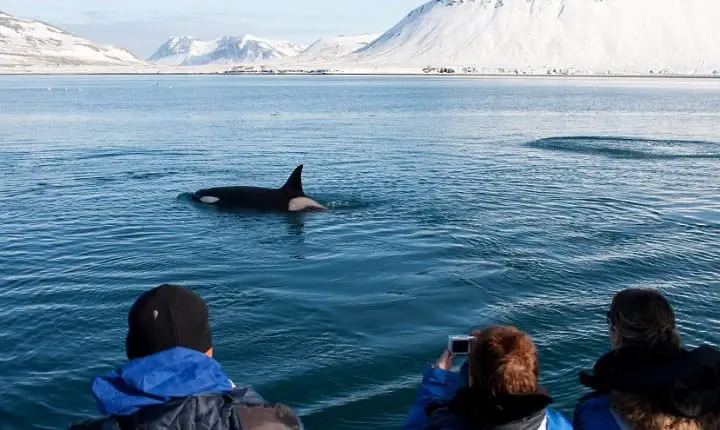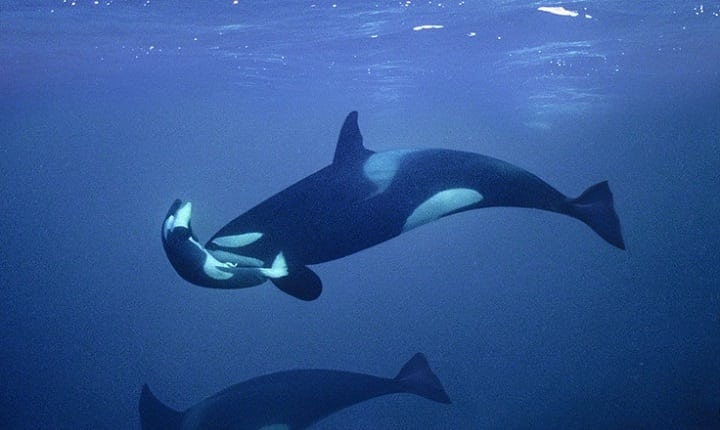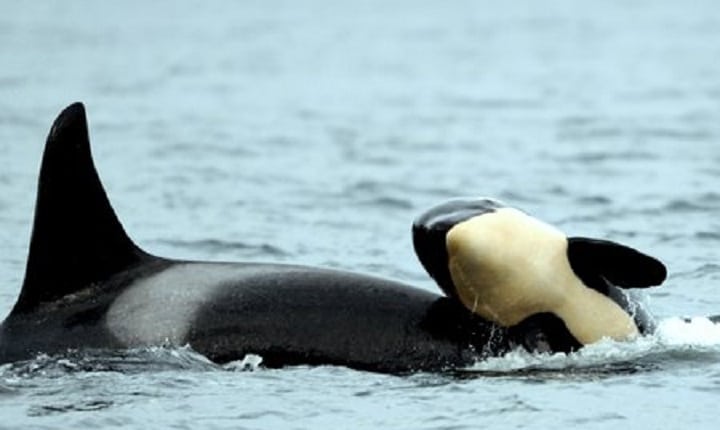This Orca Has Been Mourning Her Dead Calf For A Record 10 Days
Science

Vancouver Observer
An orca in the Puget Sound of Northwest Washington and Canada has been mourning her dead calf for a record ten days. Orcas do typically mourn their dead for several days, but momma orca J35 has been carrying her dead baby hundreds of miles for a week and a half. Orcas have strong instincts to protect their young that translate into extended periods of grief.
Why J35 Is Mourning So Heavily
Orcas lead complex emotional lives. According to John Ford, a researcher at the University of British Columbia in Canada, “The whales have a very strong drive to look after their offspring, and this evidently extends to neonates that die at birth.”

US Whales
J35, also known as Tahlequah, is a 20-year-old member of the J Pod of Southern Resident Killer Whales. They have a vast territory extending between Seattle, WA, Vancouver, and British Columbia. J35 has been in mourning since July 24.
Why The Baby Orca Died
Scientists hope to retrieve the deceased neonate when J35 finally stops mourning and releases the carcass into the ocean. The leading hypothesis is that J35 was malnourished during pregnancy. Orcas rely on Chinook salmon as their primary food source.

Pinterest
Unfortunately, salmon populations are low. The fetus likely didn’t get the nutrients it needed to be ready for birth. Orcas only have a five-year window to get pregnant. The pressure to do so is greater than ever as orca populations dwindle.
What The Death Means for J Pod
J Pod needs all the orcas it can get. The death of the calf is a blow to their numbers. Researchers are closely monitoring the pod. They’re concerned that J35 will mourn for too long, exhaust herself, and put her own life at risk. She hasn’t been eating much while she mourns her baby.

Center for Whale Research
A young four-year-old calf in the pod is also malnourished. Scientists are considering dropping live salmon injected with medicine around the calf to help it recover. J Pod hasn’t seen a successful birth in over three years. The pod needs better access to salmon to really make a comeback.